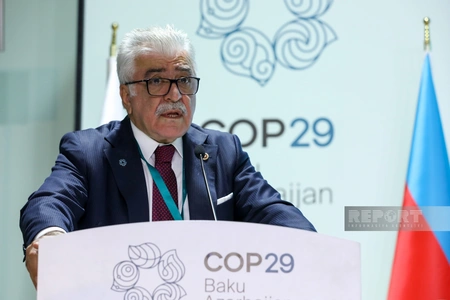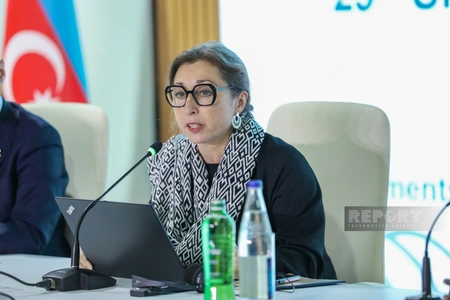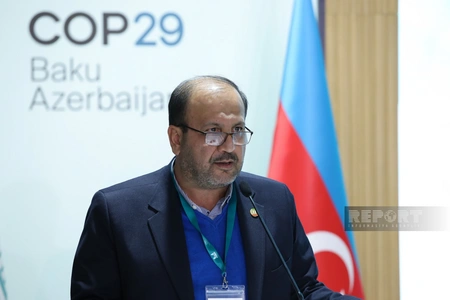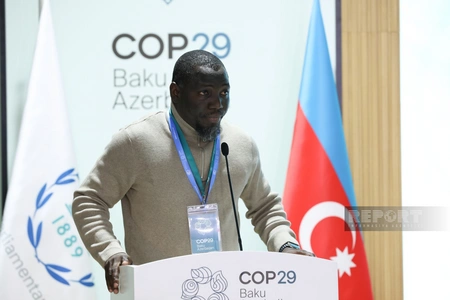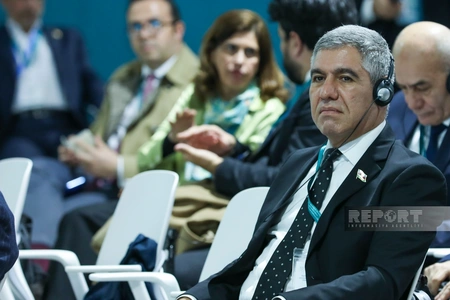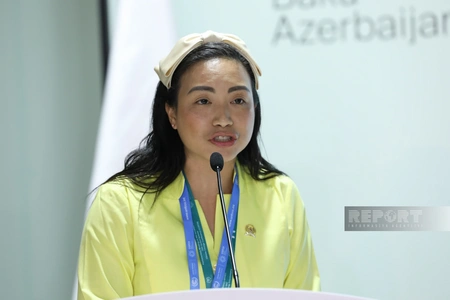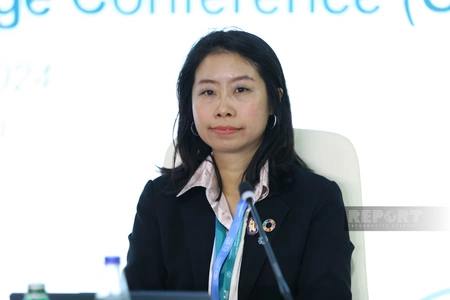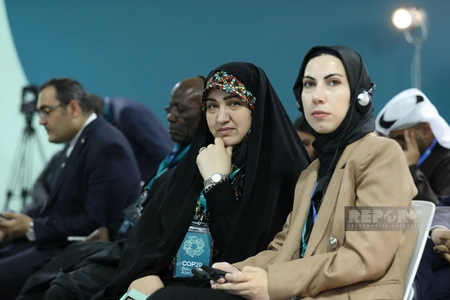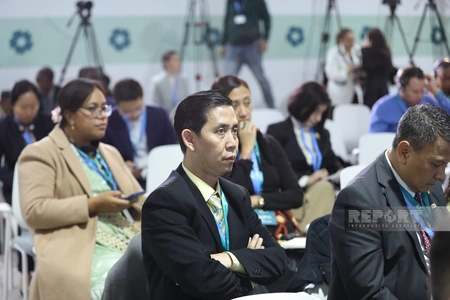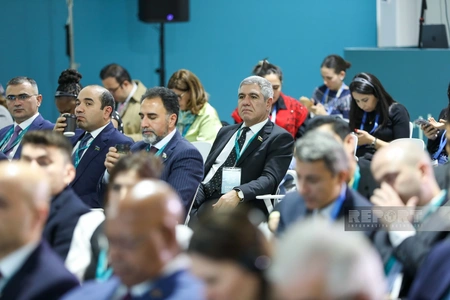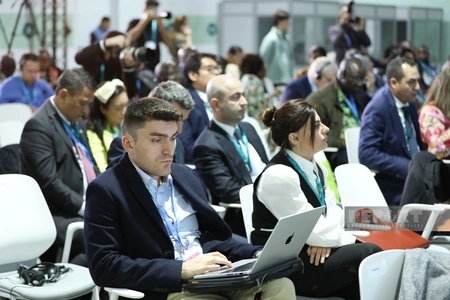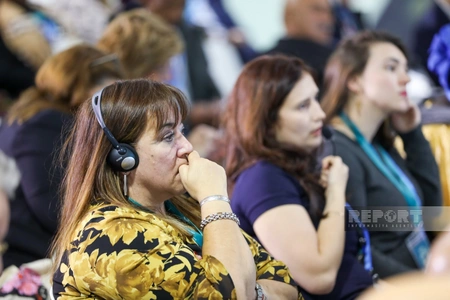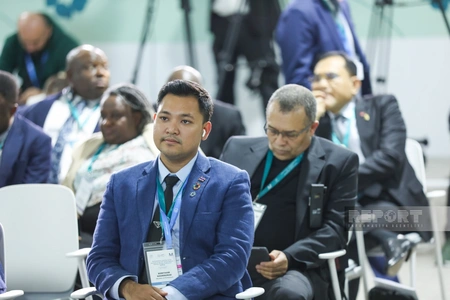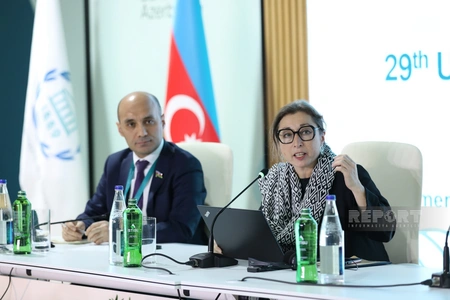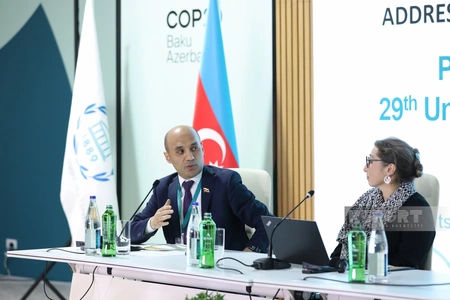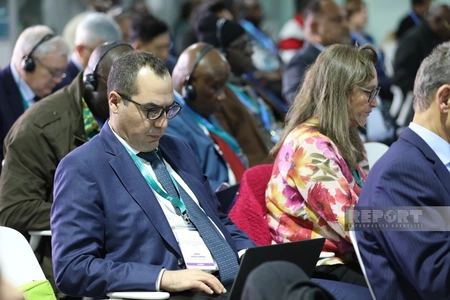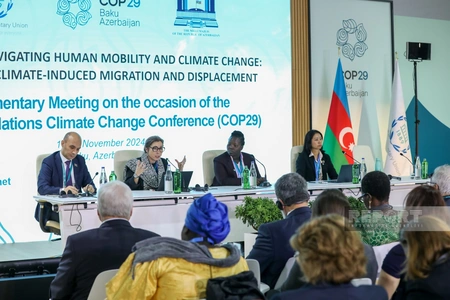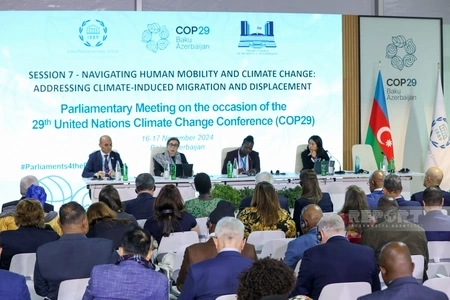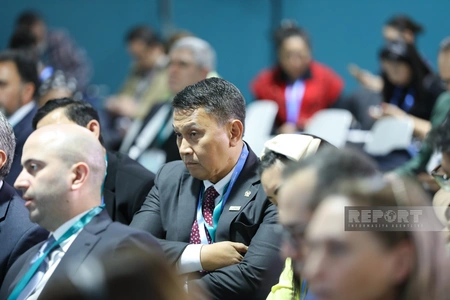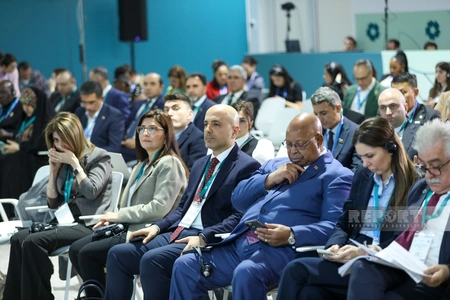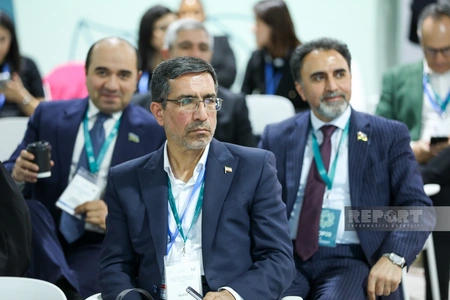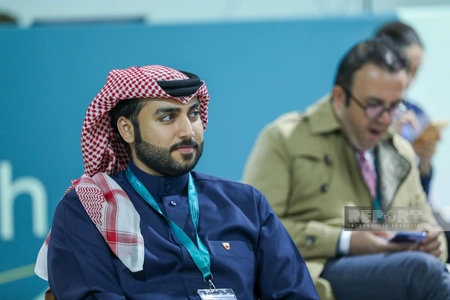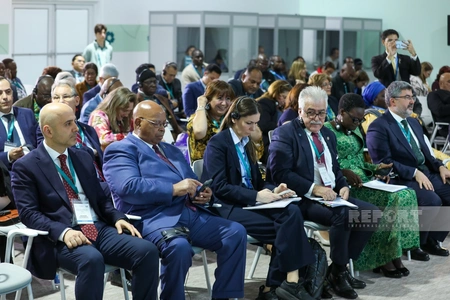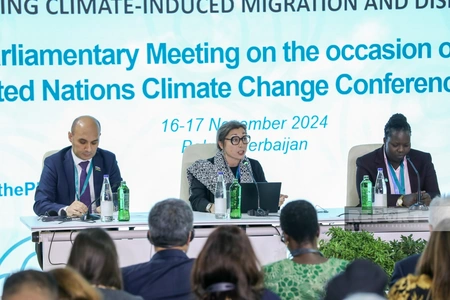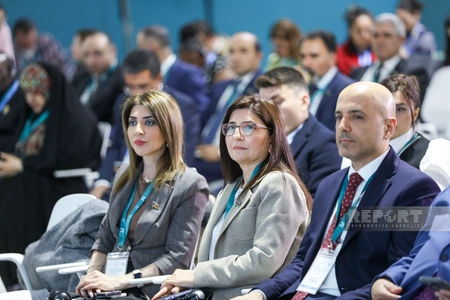Issues of forced displacement, migration due to climate change discussed in Baku within COP29
- 17 November, 2024
- 13:49

During COP29 in Baku, on the second day of the Parliamentary Meeting jointly organized by the Inter-Parliamentary Union and the Azerbaijani Parliament, a session on "Navigating Human Mobility and Climate Change: Addressing Climate-induced Migration and Displacement" was held, Report informs.
The possibilities for parliaments to promote protection strategies for displaced persons and migrants were discussed.
Michelle Yonetani, Senior Policy Officer and Special Advisor to the UN High Commissioner for Refugees (UNHCR), stated that climate change negatively affects vulnerable groups: "Currently, more than 100 million people are forcibly displaced. This includes both people who have left their homes due to conflicts and those suffering from climate change. People are forced to leave their homes," she noted.
According to Yonetani, parliamentarians must hear these people's voices and take action.
Ayoo Hellen, representative of Refugees International, noted that the climate catastrophe is real and affects low-income people the most.
"Many today risk becoming refugees due to climate change. Every year we discuss climate problems, but nothing is done. Discussions are still ongoing. These disasters are happening. It's time to move from words to action. While we discuss, the catastrophe is getting closer," said Hellen.
Saniban Buaban, member of Thailand's House of Representatives, said that farmers are also among those most affected by climate problems.
"The increase in scale and number of floods, as well as drought, seriously affects agriculture. For this reason, farmers are moving to cities, and forced urbanization is occurring. Climate disasters frequently occur in northern and southern Thailand. In many cases, infrastructure is destroyed, and people living there are forced to relocate. 30% of our population lives in risk zones," Thailand's representative emphasized.
The event concluded with a question-and-answer session.
Photo: Vugar Khanlarov
